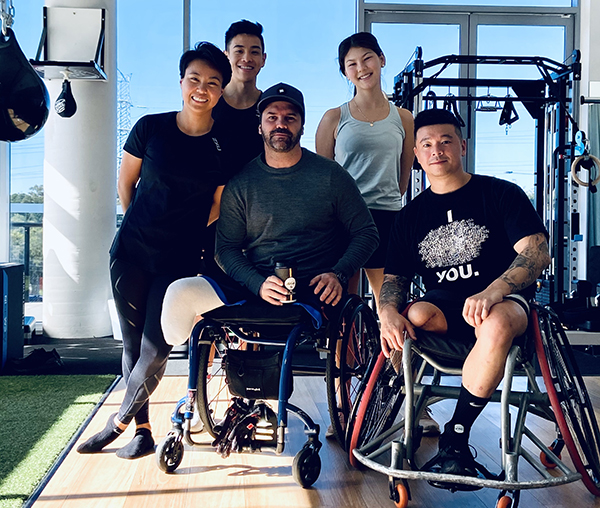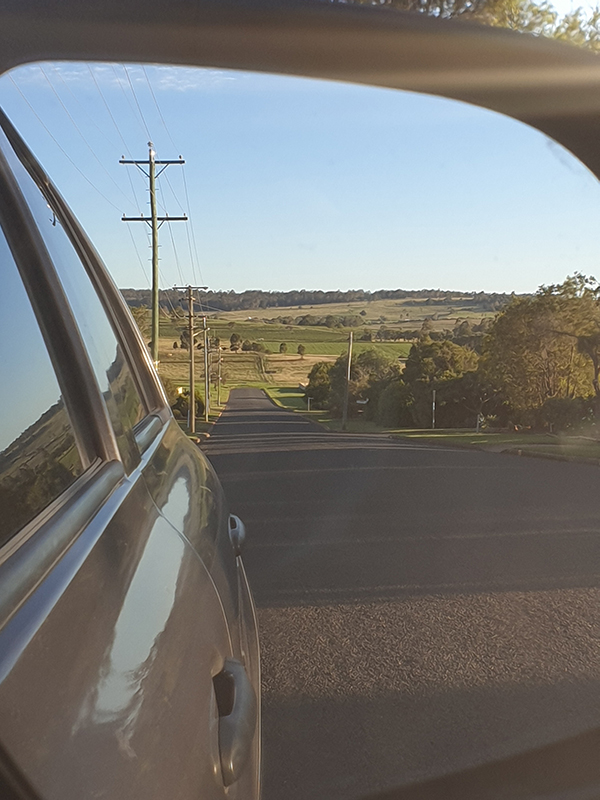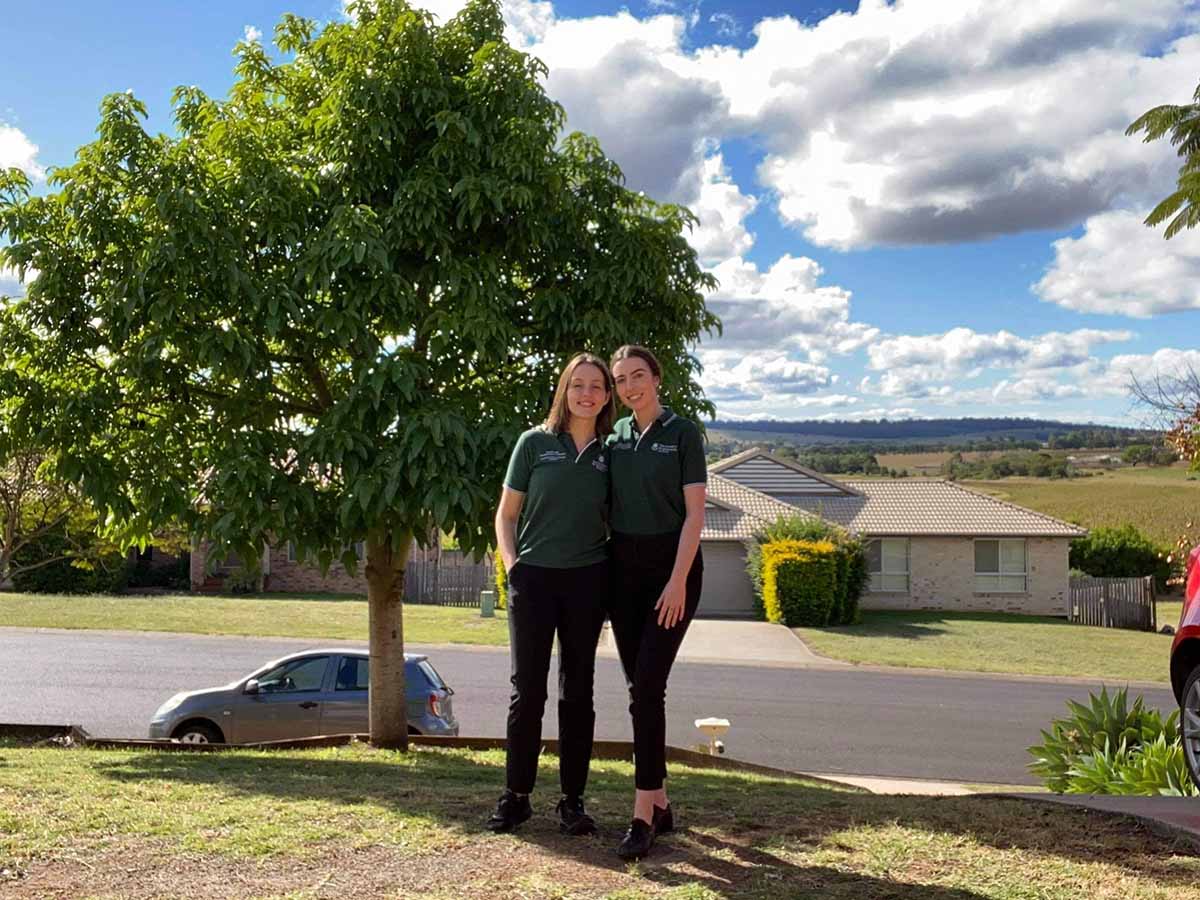Clinical Education Unit News November 2021
Hi Clinical Educators,
Welcome to the CE Newsletter.
We experienced a positive first semester for student placements thanks to the support of educators and organisations coming back on board for 2021. The impact of COVID still remains an issue as we have had a significant number of students impacted by the lockdowns and the temporary pauses to placements due to visitor restrictions for vulnerable person facilities over the last few months.
During second semester, the CELMs have continued to provide extra support to the student cohorts with a range of strategies as changes to the placement program has occurred. These include additional online learning activities, extra meetings to connect and support students, and reallocation/ change of timing of placements. UQ SHRS has been able to return to practical classes and tutorials, sessions in the simulation ward and sessional placements. While some benefits of online student learning have been identified, students and staff recognise the value of learning practical skills, and their interactions with peers and staff in onsite classes.
SHRS has seen some new organisations become involved in student education with enthusiasm to educate our future health practitioners. We have seen an increase in the number of employment options for graduates with shortages in some sectors. Organisations are looking to have a link to students to provide placements and also assist with future recruitment. As part of the CELM role, we meet with new organisations to discuss the range of student learning experiences, review qualities of positive placement experiences and provide extra training. We enjoy meeting new educators and connecting with returning alumni at our Clinical Education Workshops. It has been positive to be able to offer face to face at UQ in 2021. More information for staff interested in attending can be found at https://shrs.uq.edu.au/clinical-education/clinical-education-workshops
In this newsletter there are educator and student stories, tips on feedback and links to interesting stories about our staff and student experiences.
We want to express our sincere gratitude to the clinical educators who continued to support UQ and our student placements during this busy and challenging year. We look forward to connecting with you and your students on placements.
News from UQ
SHRS students have also started this year at the Surgical, Treatment and Rehabilitation Service (STARS) and will be part of an innovative model of interprofessional working and education. Staff and students are learning about, from and with each other to enable effective collaboration, leading to more positive patient experiences and outcomes. This includes the development of interprofessional group programs and student led programs to enhance quality and quantity of client engagement. Students have provided very positive feedback about the placements, facilities, and learning opportunities in client care.
Collier Rural Health Scholarships
These grants support students to participate in rural placements and only five grants are provided to UQ across medicine and allied health.
Applications for these scholarships closed in May and we are pleased to announce that two $10,000 scholarships were awarded to HaBS students, including Laura Brosnan (Speech Pathology).
Australian Collaborative Education Network Limited Scholarships
The Australian Collaborative Education Network Limited (ACEN) is the professional association for practitioners and researchers from the tertiary education sector, industry, community and government representatives, involved in work integrated learning (WIL) in Australia.
ACEN provides strategic leadership for work-integrated learning research, scholarship and practice in Australia, for its members and other stakeholders.
Lisa Von Berky, final year occupational therapy student, was successful in her application for an ACEN scholarship (https://acen.edu.au/2021-acen-student-scholarships/). This was one of only eight awarded in Australia. Lisa was able to complete her 10-week placement at North West Community Rehabilitation in Mount Isa. The funding allowed Lisa to explore the neighbouring communities and experience their cultures. Lisa completed both of her block placements in rural settings and hopes to work in a rural area in her future career.
HaBS News Update
If you haven’t already, please take the time to read The Faculty of Health and Behavioural Sciences News Update, where research and new developments are discussed.
For interesting news from the School of Health and Rehabilitation Sciences, please follow the news webpage.
Clinical education resources
Tips on feedback
Feedback is a critical component of every clinical placement.
Clinical Educators need to provide feedback on a consistent basis to facilitate learning.
Students are responsible for using feedback to assist them to meet learning objectives.
Some tips to help educators establish collaborative discussion with student on feedback:
- Label feedback - particularly as some students may not recognise when you are giving informal, incidental feedback
- Choose a time that will suit both you and the student and check students have understood the message you intended to give
- Students can be encouraged to repeat feedback to their CE and write it down
- Give examples of the behaviours and skills that help the student know what they can be working towards
- Set activities that allow the student to demonstrate their learning or change in behavior
- Provide further feedback on whether an improvement was noted
- Identify expectations that are appropriate for students and that can be achieved during the placement. For students who are performing well, be willing to expand with extra ideas that provide future examples that experienced therapists would achieve. Separating these two layers of expectations can be helpful for students. Students can incorrectly assume that they need to be performing at that expert level by the end of the placement.
- Give students time to prepare reflections after some client sessions to build their self-evaluation skills.
- Actively seek out the student’s view of their performance. Give them time and a structure to provide this as part of the feedback process. This may include reflective questions or a list of topics, skills and behaviours that you want them to review.
Further resources can on feedback can be found at:
https://www.clinedaus.org.au/topics-category/providing-feedback-to-students-on-placement-52
Molloy E (2009): Time to Pause: Giving and Receiving Feedback in Clinical Education. Chapter 8 in Clinical Education in the Health Professions, Sydney:
Elsevier: p. 128‐ 146
Molloy, Boud, Henderson (2019) Developing a learning‐centred framework for feedback literacy. Assessment and Evaluation in Higher Education. DOI
10.1080/02602938.2019.1667955.
Five myths about hosting physio students in private practice
Dr Roma Forbes and Ruth Dunwoodie from the School of Health and Rehabilitation Sciences, in conjunction with their colleagues, have recently had their article entitled Five myths about hosting physio students in private practice published in the Australian Physiotherapy Association newsletter.
Experiences of placements in private practice
Clinical Educator Insights
Breathe Physio & Pilates – By Winnie Lu Principal Physiotherapist
I’m the founder and principal physiotherapist of Breathe Physio & Pilates, a private physiotherapy practice based in Brisbane’s southside. I’ve just started my clinical educator role in 2021. Having graduated from UQ, and experienced clinical placement, I’m really mindful about providing a safe and encouraging learning environment for students.
Despite the evidence that suggests the private practice sector provides about 10% of clinical placements for physiotherapy students (Peris et al, 2019), I’ve found taking students hugely rewarding on many fronts. First, being a clinical educator gives me an opportunity to build and improve my leadership and communication skills, including setting expectations, providing and receiving feedback, and developing staff skills and competencies. By teaching the students, I have also become a better coach and mentor for my own staff.
Second, I’ve found that most private (fee paying) clients are very happy to have students present, and for the students to treat them. During an appointment, when I ask students to explain their assessment and clinical reasoning to the client and prompt them (by asking e.g. how about this…have you thought about this…why is it important that we do exercises this way?), it’s actually an effective way to build client trust in my practice.
Third, students are keen to learn. They bring energy and enthusiasm to my practice. I love some of the questions they ask which prompts me to think about why I always do things in certain ways. I also really appreciate the students pitching in on what they learnt from the latest curriculum which I am able to implement.
Regardless of which setting clinical educators practice in, here are some things which I’ve found to be crucial:
- Communication – clear communication and expectation setting at the start is vital.
- Timely and regular feedback – not only providing feedback to students, but also seeking feedback from them.
- A plan – having a plan about how I’d introduce students to my practice and the training we’ll provide ensures everyone works together towards the same goal.
I understand why many private practices hesitate to take up students, and even if they do, they think twice about having students treat patients. But for me, the long term benefits make clinical education worthwhile. You get to build relationships with a new generation of physiotherapists, and learn the latest evidence-based practice, which gives birth to creativity and innovation to continue providing excellent care. It also provides students with invaluable experience that make them more attractive to employers. Most important of all, it allows me to give back to the physiotherapy profession which has given me so much opportunities in Australia and overseas.
Student Insights - Breathe Physio & Pilates
 Andrew Phan
Andrew Phan
My role as a student this year has changed, climbing out of the textbooks and straight into treating real world patients. As a student, I have had the opportunity to develop my skills leading towards that of a new graduate physiotherapist, not just within the clinical setting but also with overseeing the administration side that is not emphasised during university. I was surprised with how much leadership and responsibility was required in the role of the student therapist, tasked with a considerable patient load, and accompanying autonomy, all whist being supervised by my physiotherapist educator of course. In the same light, this was also very challenging as this came with unwavering trust not only with the patient’s care but also with maintaining the practice’s reputation. I found the warm and encouraging environment conducive to continuing developing my hands-on skills but also soft skills in building rapport and through this, finding enjoyment with the profession. To maximise placement experiences, future students should reflect in a constructive manner, not perseverate on the mistakes but also take time to appreciate the privilege to learn.
Jessica Siedlecki
- Description of student role: to observe, learn and apply evidence based practice (exercise, education, hands on therapy) to empower and help patients manage or prevent pain and disability.
- What most surprised me: The diversity in patients that come through the door. They can range from NDIS patients, non- injured athletes just wanting to improve their performance and injuries in children all the way to older adults.
- Most challenging element of placement: Time management. It can be overwhelming trying to think of all the different assessments you can do but to prioritise them requires another step of clinical reasoning. This is essential to complete appointments in time but to also make sure you have time to actually treat and educate patients.
- What did I find most valuable: Improving my hands on skills. I was very fortunate to have an educator who set aside time for us during the week to practise these valuable skills on not only each other, but also on them.
- Tips for future students: Listen to your patient's story. What do they do for a living? What are the demands of the job? What things in every day life bother them because of their pain? This will help guide your exercise prescription and build patient rapport. To make the most of your placement, say yes to any extra opportunities they offer. For us, we had the opportunity to assess & treat the clinic's local soccer team outside hours. Don't worry, you'll get to go home early on Fridays for the extra hours.
Student stories - rural placement
Pipi Kaminski, Final year Occupational Therapy student
Over the past 12 months I've completed two rural placements in Queensland. Through these placements I took on a rural generalist role, where I took each day as it came and no two were the same. I was exposed to rare medical presentations, hand and oedema therapy, paediatrics, rehab, acute care, outreach, mental health and more – all within the same practice contexts. It’s safe to say I was challenged and surprised every day of my placements in the best way I can imagine.
I do think that being placed rurally has ignited some passion for rural healthcare in me. Since finishing my most recent placement one week ago, I’ve already attended a volunteer outreach trip to Cherbourg and surrounds and I’m making plans for future trips too. Metro areas only make up a tiny portion of the Australian community, and once you venture out of the cities you begin to see how much opportunity and need exists out there. I used to consider inner-city employment as my only option, but with graduation approaching I'm now finding myself looking ahead at rural opportunities around Australia, wherever OT can take me.
I know that rural placements can seem scary and demanding, but the chance to seize every day as it comes while I’m still supported by a CE has been the best opportunity that this degree has given.


SHRS clinical education training & support at UQ
SHRS is committed to providing clinical educator (CE) support and training. SHRS has been offering clinical education and support strategies in an interprofessional model since 2005. SHRS offers a suite of workshops to support the needs of CEs aimed at levels to suit both beginner and experienced CEs working in a range of settings and sectors. These are open to clinical educators who engage in the learning and development of SHRS students whilst on professional practice placements.
Details of our upcoming 2022 workshops are listed below. You can register to join us here.
Interprofessional Introduction to Clinical Education Workshops
This workshop is open to clinical education providers from the allied health professions of Audiology, Occupational Therapy, Physiotherapy and Speech Pathology. Content covers the following topics:
- Principles of adult learning
- Influences on learning
- Practical tools for engaging students in the learning environment and process
- How to provide constructive feedback for student learning and
- Approaches for dealing with challenging student issues that may arise on placement
Dates: Thursday 10 February 2022 - (8.45am-4pm)
Profession specific workshops
Each profession in SHRS offers workshops for clinical educators to provide information regarding the use and application of the specific assessment tools used to measure student performance on placement.
Profession specific workshops are usually held the day immediately following the Interprofessional Introduction to Clinical Education Workshop.
These workshops will be held on UQ's St Lucia campus.
Occupational therapy profession specific workshops:
Includes rating student performance using the Student Placement Evaluation Form - Revised (SPEF-R2) and facilitating student learning and clinical reasoning.
Dates:
- Friday 11 February 2022 (8.30am-1pm)
Physiotherapy profession specific workshops:
Includes rating student performance using the Assessment of Physiotherapy Practice (APP) instrument and assessing student performance.
Dates:
- Friday 11 February 2022 (9am-3pm)
Speech pathology profession specific workshops:
Includes the use of COMPASS for student evaluation, development and overview of the COMPASS assessment tool, and practical experience in marking COMPASS.
Dates:
- Friday 11 February 2022 (8.30am-1pm)
Interprofessional advanced workshops
These workshops are aimed at experienced clinical educators who are familiar with foundational principles of adult learning, facilitation of learning techniques and effective communication skills including the provision of feedback. Future dates will be confirmed at the start of 2021.
Facilitating clinical reasoning in professional practice:
- The importance of clinical reasoning to learner success
- The characteristics of clinical reasoning processes in the health professions
- Processes for facilitating student clinical reasoning on placement
- Ways to implement the processes in collaboration with the student
Dates: To be announced.
Facilitating solutions to challenges in learning:
- Identifying a range of learning challenges - recognising the signs
- Acknowledging common challenges in clinical education
- Cultural and Linguistic Diversity (CALD)
- Cognitive processing /skill development - not progressing towards the required standard
- Learners with special considerations
- Considerations within the student - CE relationship
- Resources and tools to manage a range of challenges
Dates: To be announced
Partner with us
We are committed to linking with leading edge organisations to grow capacity and broaden opportunities for students to engage and succeed in clinical placements. If you would like to discuss developing mutually beneficial partnerships please contact the CEU, at ceu.shrs@uq.edu.au or call 07 3365 2264.
Contacts
Clinical Education Unit
School of Health & Rehabilitation Sciences
Seddon Central (82B)
The University of Queensland
St Lucia Q 4072
E: ceu.shrs@uq.edu.au
P: 3365 4516
F: 3365 9139
Clinical Education Liaison Managers (CELM)
Occupational Therapy
Jodie Booth
P: 3365 8206
Wendy Hood
P: 3365 4518
Physiotherapy
Michael Donovan
P: 3365 4508
Speech Pathology & Audiology
Lucy Hunter
P: 3365 3164
Daniella Cain
P: 3346 7463
